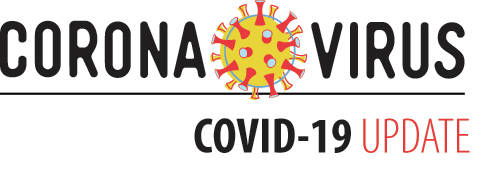
TROY — With everyday life altered as a precaution against the coronavirus, along with the added stress of the virus itself, one’s mental health may be taking a strain while trying to take the necessary steps to help stop the spread of the virus.
Brad Reed, director of Community Resource Development at the Tri-County Board of Recovery and Mental Health Services, provided tips on how to cope with the demands of the pandemic to remain physically apart from one another while still meeting one’s needs for socialization.
Staying connected
Reed emphasized the importance of thinking of “social distancing” — a term used by the Centers for Disease Control and Prevention (CDC) to encourage “remaining out of congregate settings, avoiding mass gatherings, and maintaining distance” approximately six feet from others when possible — as “physical distancing” instead, so people can remember to be social with one another and connect via technology, while remaining physically separated.
“If someone is at home, and able to, they can reach out by phone or instant messaging or even video chats. We have an amazing array of tools to stay in touch,” Reed said. He suggested making a schedule of when one reaches out to others, adding people should, “Reach out to those who are most isolated most often, even if its just a two-minute conversation asking, ‘Are you OK? Do you need anything?’”
When reaching out to neighbors who don’t have the ability to talk on the phone or online, Reed suggested making a hand-lettered sign that says “Hi, I’m your neighbor. Are you OK?”
“Ring the bell, tap on the window, but don’t go into the house unless it’s an emergency,” Reed said.
Reed also suggested connecting with others via online games, as well as keeping a journal to help unload thoughts at the end of the day. Members of various clubs and groups can also find ways to stay connected even if they cannot meet in person, such creating a phone tree to reach out to each other, as well as vulnerable people in the community.
Reed also provided a new site they have put up in conjunction with Miami County Public Health as part of the Community Health Improvement Plan: https://www.hello-howareyou.org/. The website is a starting place for people to stay connected.
How to avoid getting overwhelmed
Reed also discussed how people can relieve stress by focusing on the things they can control, such as household chores or fun hobbies.
“Most of us don’t like having our freedom restricted. We like to do what we want, when we want. So these restrictions cause stress, which is lasting for days and weeks,” Reed said. “Each of us has our preferred relief valves. Some of us make art. Some make music. Cleaning and decluttering the house or the garage is a great way to relieve stress. Make daily goals, even if its just one or two things. Checking things off a list gives us a sense of accomplishment, and that reduces stress.”
Reed also discussed the need “to trick our brains back into balance” between one’s logic and one’s emotions.
“Our brains have two systems — one is the thinking, logical system, and the other is the instinctive, emotional one. In times of fear or stress, the emotional brain hogs all the energy and won’t let the thinking brain do its job. We have to trick our brains back into balance,” Reed said. He used the example of over-shopping at grocery stores, causing some people to hoard supplies. He suggested taking inventory of what you have and only getting what you really need. Reed also recommended taking breaks from the 24-hour news cycle and social media.
Experiencing increased depression, anxiety
The increased isolation due to the state’s “Stay at Home” order may be harmful to people dealing with mental illness and/or addiction. Those with depression may be in extra need to have others check in on them to “break the isolation” and break the cycle of fear and intrusive thoughts with they may be dealing.
“Among those persons with depression or at risk of depression, isolation is something to watch for and to address,” Reed said.
Reed added that “mental health providers mental health providers are still open for business,” so people should still continue their care plans and reach out to therapists for help. Those providers may be working from home and/or the office, meeting clients by phone or video telehealth connections.
Those in recovery also need to stay connected to family, sponsors, peer supporters and others in their support network to make sure that they stay on the right track, Reed said, as stress and isolation can also be triggers for them.
For those dealing with anxiety, extra self-care can help people can take to deal with their symptoms.
“Anxiety differs from depression in that, for many people, it does respond well to self-care,” Reed said.
One’s anxiety symptoms may provide clues as to what may help alleviate them.
“For instance, if a person is having trouble concentrating because of intrusive thoughts, an activity such as an adult coloring book that forces concentration can help provide focus,” Reed said. “If a person is feeling restless or jittery, that’s the body’s ‘fight-or-flight’ system ramping up. Taking a walk or doing some exercises that involve the large muscles will help.”
Reed also encouraged planning meals, eating well, getting regular sleep, and avoiding alcohol and drug use. In regard to alcohol and drugs, he said, “They may provide momentary distraction but they seriously disrupt our sleep and other systems.”
If people are feeling they are in crisis, they should call the 24/7 Tri-County Crisis Hotline at 800-351-7347 or the National Suicide Prevention Lifeline at 800-273-TALK (8255). People who can’t or don’t want to talk can use the national Crisis Text Line by sending “4hope” to 741741.
“Talking to others is generally the best way to prevent suicides,” Reed said.


